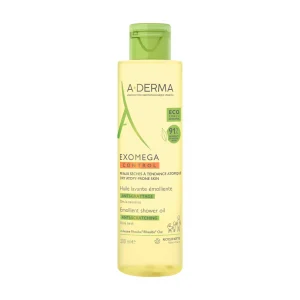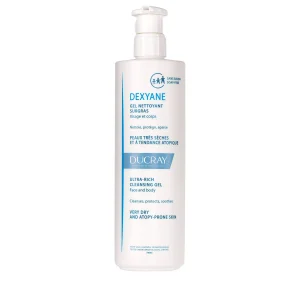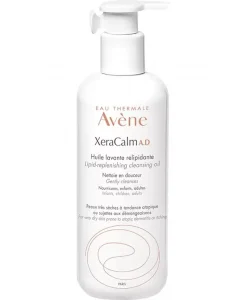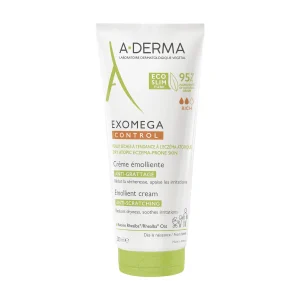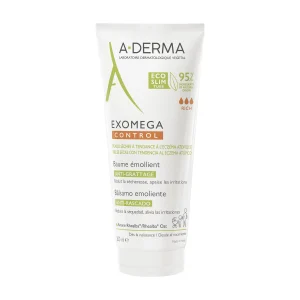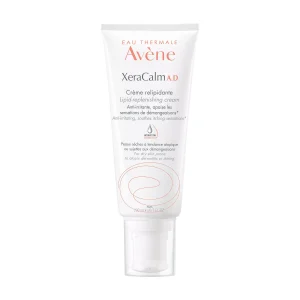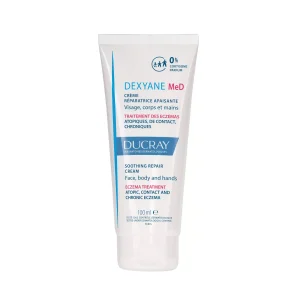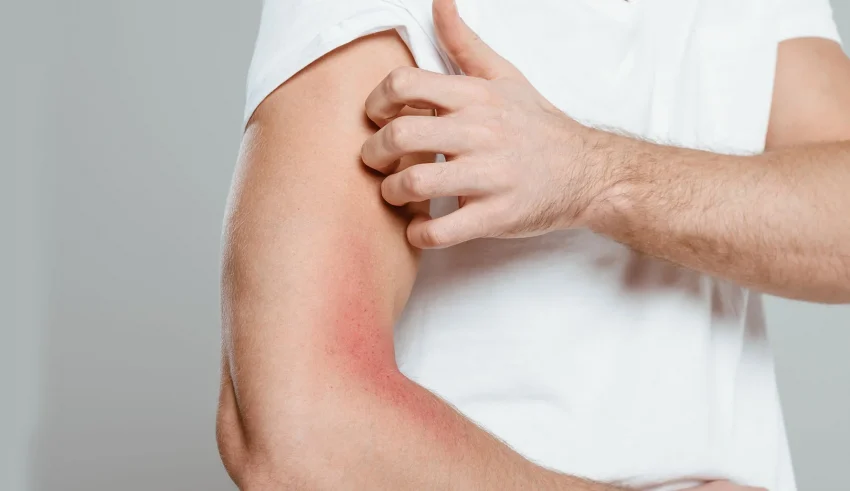
Dealing with an eczema rash can be very frustrating and difficult. The dryness, itching, and other unpleasant symptoms can sometimes be overwhelming. Fortunately, you can reduce your symptoms and improve your comfort by getting help from the dermatologist Dr. Thanaa Ward. Read on!
What conditions can cause a flare-up?
Dr. Thanaa Ward confirms that when your skin becomes too dry, it can easily become brittle, scaly, rough, or tight, which can lead to an eczema flare-up.
In addition to dry skin, some common substances and circumstances can lead to skin rashes.
- Skin care products and makeup
Some products contain very harsh ingredients which can irritate your skin and cause dryness, or redness. For example, you may have an eczema rash if you react badly to any of the ingredients in your shampoo or lotion.
- Temperature changes
It is common for your skin to become irritated when you experience intense temperature changes. For example, you may experience a flare-up when summer starts and the weather gets hotter. Or, you may experience skin rashes at the beginning of the dry winter months.
- Eating certain foods
If you are allergic to certain foods, such as milk, soy, eggs and other foods, this can trigger an eczema flare-up.
- Sweating
If you work out or spend time outdoors in hot weather, you will probably sweat. This can irritate your skin and cause itching and redness.
According to Dr. Thanaa Ward, emotional stress and anxiety do not directly cause eczema, but they can trigger its symptoms.
What types of eczema can I have?
There are many different types of eczema. These skin conditions can cause a wide range of symptoms.
1- Atopic dermatitis
Atopic dermatitis is very common. Although its specific cause is not known, many scientists believe that it develops when your immune system works abnormally. If you suffer from atopic dermatitis, you will probably experience itching and inflammation.
2- Dyshidrotic dermatitis
If you suffer from dyshidrotic dermatitis, you are likely to develop blisters on the soles of your feet and the palms of your hands. These blisters can burn and itch. This often occurs during the summer, and may get worse if you move to a warmer climate.
3- Seborrheic dermatitis
If you have seborrheic dermatitis, you are likely to develop scaly, yellowish patches on your face, scalp, and other parts of your body. You may also experience problems with dandruff.
4- Contact dermatitis
Contact dermatitis is a skin condition that is triggered when your skin is exposed to an irritant or allergen. The most common allergens are fabrics, detergents, and makeup. Identifying what triggers this skin condition can be a good way to improve it and decrease the frequency of your flare-ups.
5- Nummular dermatitis
Nummular dermatitis causes scabby, itchy patches to appear on your skin. These irritating patches are likely to develop on your legs, buttocks, arms, and back.
6- Neurodermatitis
If you are constantly scratching your skin, you may have neurodermatitis. This condition develops when you scratch an itch on your skin for a long time. As you continue to scratch this area of your body, you may develop areas of leathery, thickened skin. These patches often appear on the wrists, forearms, head, and legs.
How long does an eczema rash last?
Dr. Thanaa Ward indicates that eczema varies in severity and extent. For most people, it is a lifelong condition that consists of occasional flare-ups. Once treated, the rash may take several weeks to go away. Because these rashes develop from negative immune reactions, there is also a risk that more flare-ups will occur unless you reduce your exposure to the triggers.
Your flare-ups can prevent you from enjoying your usual activities and make you feel self-conscious about your appearance. Getting medical help can be a good way to reduce the length and frequency of your outbreaks and help your skin heal faster and more effectively.
How to stop the itching of severe eczema?
Professional medical help can assist in managing your symptoms and reducing the frequency of your flare-ups. In particular, using cleansers, moisturizers, and other gentle skin care products will help your skin become softer and less itchy. In addition, medical assistance can help you identify the foods, products, and other substances that trigger your episodes. Avoiding these triggers can reduce the frequency of your flare-ups.
1- Use of cleansers:
Many common cleansers contain harsh chemicals that rob the skin of its natural moisture. For example, sulfates are a common foaming agent in cleansers, but they are incredibly harsh on the skin. Another potential irritant is artificial fragrance, which is a deadly cocktail of toxic chemicals, alcohol, and preservatives. As a general rule, dermatologists recommend avoiding cleansers that contain artificial fragrances or perfume, as they are the most likely to irritate the skin.
Without further ado, here are 3 cleansers for dry, eczema-prone skin! They are a great help in soothing the skin and managing eczema flare-ups.
A-Derma Exomega Control Emollient Shower Oil
Ducray Dexyane Ultra-Rich Cleansing Gel
Eau Thermale Avene XeraCalm A.D Lipid-Replenishing Cleansing Oil
2- Application of emollients
Emollients are moisturizing skin care products applied directly to the skin to reduce water loss and cover the skin with a protective film. They are often used to help manage dry or flaky skin conditions, such as atopic eczema. In addition to making the skin less dry, they may also have a mild anti-inflammatory effect and help reduce the number of flare-ups.
There are several different emollients out there: lotions, creams, and ointments.
- Ointments contain the most oil and therefore can be quite greasy, but they are the most effective at keeping the skin moist.
- Lotions contain the least amount of oil and are therefore not greasy, but can be less effective.
- Creams fall somewhere in between.
According to Dr. Thanaa Ward, an eczema rash cream should contain the following ingredients: petrolatum, silicone derivatives (such as dimethicone), glycerin, hyaluronic acid, ceramides, fatty acids, anti-inflammatories (such as enoxolone), and colloidal oatmeal.
So, what are the best eczema creams to moisturize, strengthen and protect against flare-ups? Here’s what we suggest.
Emollients:
A-Derma Exomega Control Emollient Cream
A-Derma Exomega Control Emollient Balm
Ducray Dexyane Anti-Scratching Emollient Cream
Eau Thermale Avene XeraCalm A.D Lipid-Replenishing Cream
Medical device repairing emollient cream:
The following dermatologically tested cream is recommended for the treatment of eczema. It is suitable for very dry skin prone to eczema as it restores the skin barrier, regulates moisture levels, and relieves itching and inflammation, promoting an overall feeling of comfort and well-being. Massage this cream onto inflammatory eczema lesions.
Ducray Dexyane MeD Soothing Repair Cream
3- Use of prescription products
Many flare-ups are related to allergies. If allergies are the cause of your dry skin, Dr. Thanaa Ward may advise you to use an oral antihistamine. Using a prescribed topical corticosteroid may also improve your skin condition.
4- Avoiding triggers
It is common to have a flare-up after contact with a portion of food, product, clothing, or other environmental allergens. To reduce the risk of flare-ups, avoid possible triggers and stop taking long showers that can dry out your skin. Dr. Thanaa Ward warns against wearing makeup during a flare-up, as it can irritate eczema rashes on the face.
Finding relief
Eczema and rashes can cause itching, dryness and other frustrating symptoms that can also make your skin look red and scaly. Treating them will improve your appearance and minimize your unpleasant symptoms.
If eczema is left untreated, Dr. Thanaa Ward explains that it will spread further and get worse. Because eczema can cause cracks and breaks in the skin, there is a risk of the skin becoming infected with bacteria. The risk is higher if you scratch your eczema or don’t use your treatments properly. She adds that infected eczema can also lead to more dangerous complications. For example, if left untreated, a serious staph infection can lead to sepsis, a potentially fatal disease.

